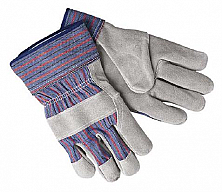When packing clothing for the trip, please keep in mind our daily activities: we will be working during the day (bring old clothes that you don’t mind getting dirty). Once the building portion of the day is complete, we will be eating dinner and socializing in the evenings (bring clothes other than working clothes). Both on the worksite and off, loose, comfortable clothing is best. Don’t forget to bring the Habitat shirt that you received with your packet!
Please note some important cultural guidelines:
Fijians dress conservatively- please be respectful of local customs.
All shirts must have sleeves. Shorts are not worn by men or by women in Fiji. Women typically wear long skirts; when in the village, sarongs must be worn at all times when not on the build site, unless we are given special permission. (Pants are completely fine on the site, and you will be able to purchase a sarong in Fiji if you like- no need to pack one.)
For the worksite:
Lightweight t-shirts, including your Habitat shirt (all shirts must cover the shoulders- no tank tops)
Long pants, such as hiking pants or jeans (no shorts)
Closed-toe shoes with a hard sole (work boots if you already have them, otherwise, gym shoes are perfectly fine)
Hat and bandana
Sunglasses
Sunscreen
Chapstick with sunscreen
Work gloves (Gloves that have suede/leather work best- you can find these at any Ace, Lowe’s, Home Depot, etc.)

Reusable water bottle
Camera
Hand sanitizer
Insect repellent
Gatorade/Powerade powder to add to your water
Small backpack or bag to carry your sunscreen, etc. to the worksite
Off the worksite:
Lightweight casual clothes (lightweight shirts and pants/skirts)
Sandals and/or beach shoes
Personal toiletries
Baby wipes or make-up wipes (feels great and gets the dirt off of your face after a long day!)
First aid items (there will always be a first aid kit on site for emergencies, but it’s nice to have bandaids, tylenol, pepto bismol, etc. for yourself!)
Any medications you may need
Earplugs (you will be sharing a room)
Small flashlight, just in case
Snacks- granola bars, nuts, etc.
Swimsuit
Zip-lock or plastic bags are handy for soiled clothing/shoes
And of course, don’t forget your passport, ID, phone, and personal spending money
Laundry is typically available at the hotel, so you do not need to pack an entire two week’s worth of clothing. Bath towels will be provided. If you forget an item, you can always purchase it in Fiji.
What not to bring:
Anything expensive or valuable (leave your nice watch at home)
Large amounts of cash
Gifts
As you have read in your Orientation Handbook, Habitat for Humanity has a very important policy on gift-giving. You can read more below, but essentially, giving gifts can cause major disturbances in the community (even though you have the best possible intentions and may not even be aware of the effects of your gift). If you would like to donate anything, we will give it to the affiliate, who will distribute it appropriately and fairly. You joining this trip is a huge gift in and of itself! See the policy below:
Habitat for Humanity takes a very strict stance on avoiding paternalism and fostering any sense of dependency or inequality among our partnering communities. Our Habitat partners have asked that team members not bring gifts such as radios, watches or special favors for individual families on any trip. The most well-intentioned and (from our perspective) most minor gift can often create jealousy, competition and enmity.
During the build, you may want to give gifts to the families you work with, but it is important that you realize the negative impact a gift can have on Habitat for Humanity’s greater goal of empowering families and communities. Habitat gives opportunities, not charity. Gift-giving creates dependence rather than a sense of responsibility and motivation. It may also lead to tensions within a community between those who receive gifts and those who do not. Habitat for Humanity has more than 30 years of experience working in these situations; the most powerful contribution you can give to the families is additional funds for Habitat to build more homes.
